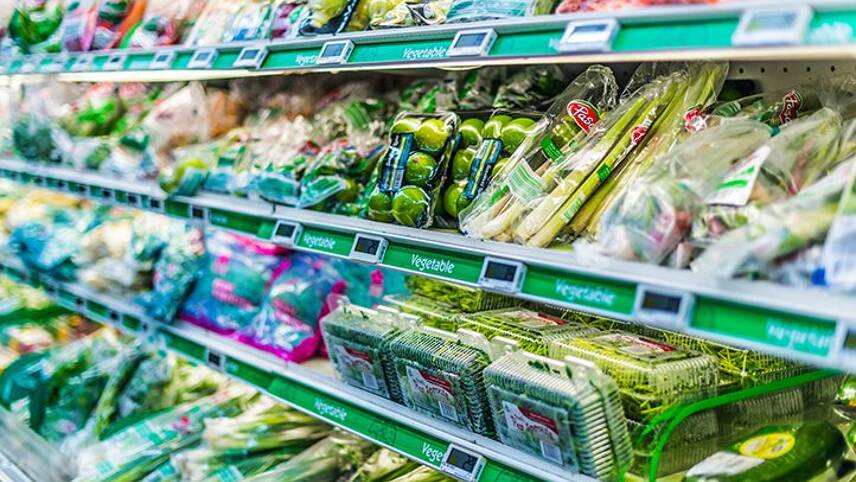This premium content is exclusive to edie Members.
To find out more about edie Membership, please click below.
If you are an existing member, login here

At a glance:
Who: UK retailers
What: Collaborative forum on Scope 3 emissions
Where: UK
Why: To reduce value chain emissions
When: Launched March 2023
The Challenge
Agriculture accounts for around 12% of the UK’s annual emissions and its absolute emissions did decrease by 12% between 2015 and 2020. But WRAP and WWF claim that the rate of reduction needs to increase by at least 60% if the sector is to align with the UK’s carbon budgets for the 2030s.
The Solution
Eight of the UK’s biggest supermarkets, collectively representing an 80% share of the grocery market, have worked with WRAP and WWF to launch a new initiative to cut the sector’s climate impact.
How it works
Aldi, Lidl, the Co-op, Morrisons, Sainsbury’s, Tesco, Waitrose and Marks & Spencer (M&S) have signed on to the new ‘Retailer Net-Zero Collaborative Action Plan’.
The aim of the new plan, facilitated by NGOs WRAP and WWF, is to unify approaches and methods used to measure the carbon footprint of food and drinks. At the moment, different supermarkets are taking different approaches to emissions accounting, despite often using the same suppliers. This places the burden on producers and suppliers, who often do not have the same resources at their disposal as grocery giants.
Under the plan, the supermarkets will work with 17 key suppliers this year to trial WRAP’s new measurement and protocols for measuring Scope 3 (indirect) emissions. The protocols will then be rolled out across other suppliers.
The programme builds upon the pledge to action on climate under the WWF’s Retailers’ Commitment for Nature group and WRAP’s Courtauld 2030 GHG target, which is aiming to achieve a 50% absolute reduction in emissions associated with UK food and drink by 2030.
WRAP’s current guidance on Scope 3 emissions builds on the Greenhouse Gas Protocol and Science Based Targets Initiative (SBTi) and offers sector-specific guidance – focusing on ‘purchased goods’ specifically.
The Protocols also provide guidance on determining the key organisational hotspots for GHG emissions, judging data needs, tracking & reporting on progress.
The results
The adoption of the Action Plan is ongoing so the results are not yet public, however, it is believed the initiative will help the retailers push toward their individual net-zero targets, which range from 2030 to 2050 respectively.
Industry Context
CDP estimates that the average business will see at least 70% of its absolute carbon footprint occurring indirectly. This means that any credible corporate climate plan should holistically include Scope 3 emissions.
This is a unique challenge for the retail sector. According to the British Retail Consortium (BRC), the industry contributes 80% more emissions annually than all road transport in the UK, if the lifecycle footprint of the goods that the sector procures and sells is accounted for. When taking into account product and produce lifecycle emissions and the additional emissions from vehicle fuel from retail fleets, the sector’s contribution to the UK’s emissions sits at 215 MtCO2e
The retail sector has forged collaborative partnerships in a bid to drive businesses towards net-zero emissions, but efforts to date have been threatened by ongoing megatrends. The retail sector has struggled to deliver a coordinated response to the pandemic and subsequent lockdowns, with the following economic downturn only contributing to the challenges facing the sector.
© Faversham House Ltd 2024 edie news articles may be copied or forwarded for individual use only. No other reproduction or distribution is permitted without prior written consent.

